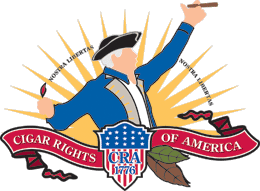On June 21st, 2016, Cigar Rights of America (CRA) held an industry summit in Miami, Florida to discuss the pending regulations on premium cigars set to take place beginning August 8th, 2016. Following the meeting, the Cigar Dave Show hosted a roundtable featuring Cigar Rights of America Executive Director Glynn Loope, Jorge Padron of Padron Cigars, Jim Young of Davidoff of Geneva, Rocky Patel of Rocky Patel Premium Cigars and Alan Rubin of Alec Bradley. While there wasn’t a formal debriefing, the roundtable did provide some public comment and insights from industry personnel into what took place there.
The full roundtable discussion on the Cigar Dave Show can be heard here.
The roundtable implied there were two main objectives of the CRA meeting- 1) Provide a level of education on the regulations; 2) Collaborate on a strategy against the FDA going forward.
From the roundtable discussion, there are three takeaway items that will be of interest to those following the FDA saga.
I.The Framework of a Plan Exists
The framework for challenging the FDA regulations has taken shape. From the roundtable, a three pronged approach was laid out. The specifics were not discussed, but given there are many legal ramifications, this is understandable.
1.Legislative Front
If you have followed the FDA saga, there wasn’t much new news here. The House Appropriations Bill that is in Congress right now has language for both a premium cigar exemption and a change in the predicate (grandfather) date. The industry is going to work hard on lobbying on Capitol Hill to see that this gets passed and that a companion Senate Bill is introduced and passed.
Loope commented there is a very short window as there are only six weeks left in the year that Congress is in session.
Many have asked why bother with the predicate date change language if the premium cigar exemption is already a part of the bill. While the exemption is desired, the predicate date language provides some extra insurance in case the exemption fails to pass.
2.Litigation
In a public forum, this was really the first time this was acknowledged as an option. During the roundtable Glynn Loope commented that, “The cigar industry has to come together and will come together with the CAA (Cigar Association of America), IPCPR (International Premium Cigar and Pipe Retailers), and CRA spearheading a comprehensive industry piece of litigation of complaints opposing the most disastrous parts of the rule”. This comment was one of several throughout the roundtable reinforcing the unity statement made by the three trade organizations on May 27th.
The details of what the litigation will contain will be were not discussed as a part of the roundtable, but some items such as user fees and constitutional rights were mentioned as potential points. No specific timetable was discussed during the roundtable.
3.Negtotiate Directly with the FDA
This is something that has not been talked about much. During the roundtable, Rocky Patel noted the ambiguity and lack of detail with the compliance issues provide a opportunity for direct discussion with the FDA – and potentially open the door to negotiations.
While this is a big unknown on how this will go, it is something certainly worth watching.
—
In this author’s opinion, funding mechanisms will dictate where the roadmap ahead for this plan. As we see in Item III below, this is something that is very much a part of the industry discussions.
II. Ambiguity and Gray Areas Are Very Much Present
Since the FDA announced the pending regulations, there have been more questions than answers in many areas. During the roundtable, Rocky Patel was asked what some of the costs involved for compliance, and indicated this was an unknown. Patel noted that while the FDA provided guidelines, many lack “meat or substance” for what needs to be done.
Even during the roundtable discussion, a couple of discussion points came out that emphasized there are gray areas. The point of getting free cigars when buying a box had already been clarified by the FDA as be allowed, but it was mentioned during the interview this was something prohibited. The point of charitable contributions was mentioned as not being allowed, but there has been still some debate on this particular topic on whether a charitable contribution and a marketing sample are one and the same.
III. Administrative Costs for the Response
Costs have been discussed for compliance and testing, but one thing that was made very clear during the roundtable is that there are costs and funds needed for a response to the FDA. Both manufacturers and consumers were called upon to support CRA during this process. Jim Young noted that lawyers and consultants will cost money to fight this battle.
In this author’s opinion, this will most likely be a big subject of debate, and funding will ultimately determine what the final strategy will be.





